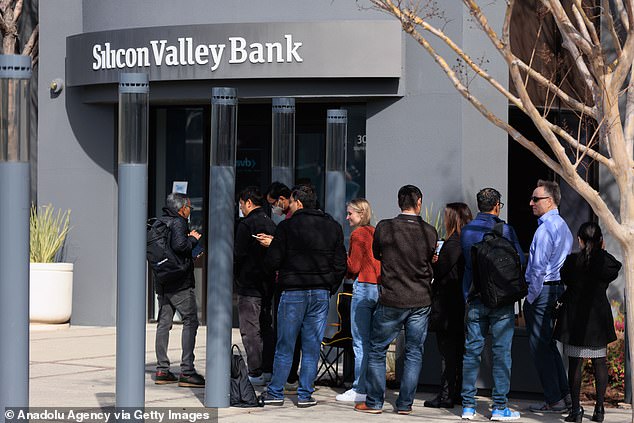
There is little more disconcerting than news of bank runs, government bailouts and plunging bank share prices – all of which we saw last week. Silicon Valley Bank in the US collapsed and HSBC had to bail out its UK arm. Then troubled banking giant Credit Suisse announced it had secured a £45 billion lifeline from Switzerland’s central bank. Meanwhile, shares of UK banks have been buffeted about.
But although the headlines may sound as if they have a whiff of the global financial crisis about them, the circumstances are very different.
Banks are in a lot better nick than in 2008. They have to comply with beefed-up Bank of England regulations and they are regularly stress-tested to see how they would manage in a variety of difficult events. Even if something did go wrong, UK savers and investors benefit from a number of protections.
YOUR CASH SAVINGS
In the very unlikely event that your bank, building society or credit union goes bust, you should get your savings back, so long as you meet certain conditions.
Firstly, the provider holding your cash must be authorised by the Financial Conduct Authority (FCA) and covered by the Financial Services Compensation Scheme (FSCS). They should advertise clearly if they do have this coverage. You can also check on the FSCS website at fscs.org.uk/check/check-your-money-is-protected.
![]()
Crisis: The US tech bank Silicon Valley Bank collapsed after businesses withdrew deposits
Secondly, you will only get back savings worth up to £85,000 per bank. If you have a joint account, you’re covered up to £170,000. Laura Suter, head of personal finance at investment platform AJ Bell, says: ‘This means that ideally you don’t want more than £85,000 with each provider, even if it’s spread across different accounts.’
Protection is across all accounts held within the banking group, not per account, so watch out for banks with a number of brand names. For example, First Direct is owned by HSBC and Royal Bank of Scotland is another brand under the NatWest bank.
You may get protection of up to £1 million for up to six months if you have a temporarily high balance.
YOUR INVESTMENTS
Your investment provider should not go bust. They are very tightly regulated precisely so they don’t. Even if it does, your provider should be holding your money safely in a separate client account. If something does go badly wrong, you should receive FSCS protection worth up to £85,000. Furthermore, if an authorised firm gives you bad advice or is negligent in its management of your investments, you will be covered.
However, you will not be compensated if your investments drop in value as a result of movements in financial markets. That is just part of the risk of investing.
Before investing, check that the firm is authorised by the Financial Conduct Authority or the Prudential Regulation Authority. Make sure that it is regulated to do the particular activity that it is offering you, for example giving investment advice.
Some investment types offer no protection. These include cryptocurrencies, mini-bonds and peer-to-peer lending.
YOUR PENSION
Should your pension provider go bust, the compensation you’re entitled to will be determined by the type of pension you have and if it is regulated by the FCA.
Defined contribution pensions: These are pension schemes where both you and your employer pay in a set monthly amount.
Although these schemes are arranged by your employer, your money is held and managed by a separate pension provider. That means that if your employer goes bust, it will not affect your pension holdings. Whether your savings have FSCS protection should the pension provider go bust depends on how your scheme was set up. You can check this with your pension provider.
Self Invested Personal Pensions: In most cases, if your Self Invested Personal Pension (Sipp) provider were to go bust, you would receive up to £85,000 FSCS compensation.
However, some providers structure their Sipps so all of your savings are covered. Ask your provider what protection it offers.
Defined benefit pensions: Also known as final salary, this type of workplace pension offers a guaranteed income in retirement. It is up to your employer to ensure there is enough money available to pay out.
Pension funds are usually ring-fenced from the company balance sheet, so even if your employer gets into financial difficulty your pension should be protected.
If the scheme can’t pay, your pension is taken over by the Pension Protection Fund (PPF), which is a lifeboat fund set up by the Government.
Becky O’Connor, director of public affairs at pension provider PensionBee, says: ‘The PPF will compensate you for 100 per cent of your pension if you’ve already reached the scheme’s retirement age at the time your employer goes bust.
‘If you haven’t yet reached the scheme’s retirement age, you’ll only be entitled to 90 per cent compensation, to a set limit.’
#bcaTable .footerText {font-size:10px; margin:10px 10px 10px 10px;}









